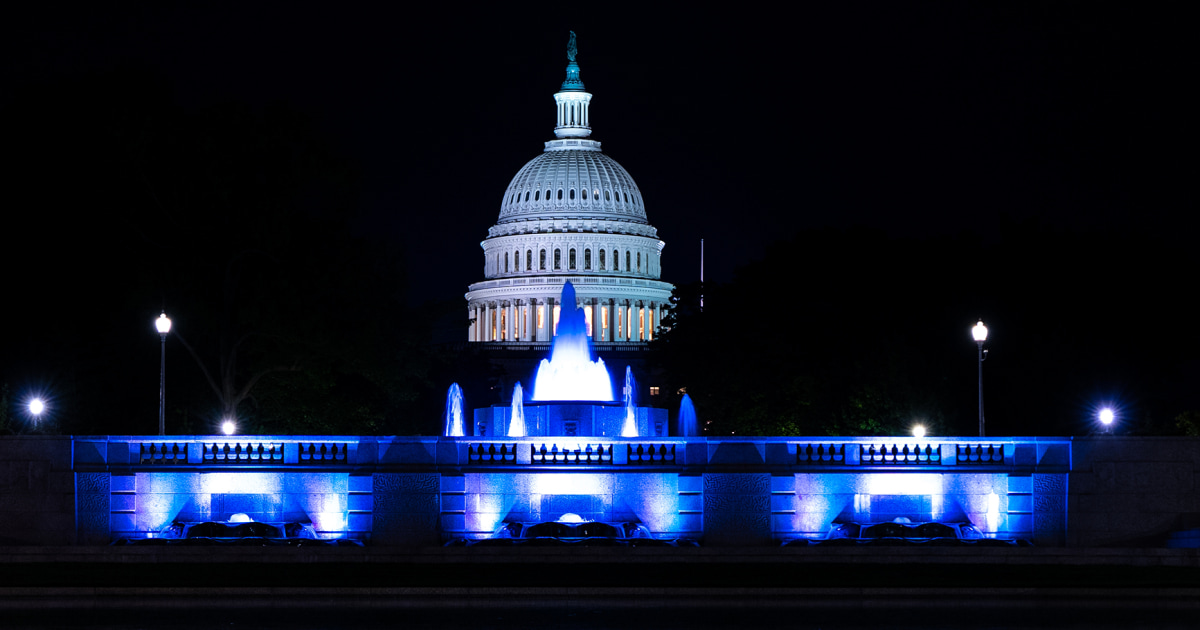WASHINGTON — The Senate voted on Thursday to pass a $1.7 trillion government funding bill, sending it to the House to avoid a holiday shutdown.
The vote was 68-29 on sweeping legislation that will keep the government funded through next fall and overhaul election laws in an attempt to prevent another Jan. 6. It came after votes on a potpourri of amendments, including landmark workplace protections for pregnant and breastfeeding employees.
The bill also includes nearly $45 billion of additional military, economic and humanitarian assistance to Ukraine.
“A lot of hard work, a lot of compromise, but we funded the government with an aggressive investment in American families, American workers, American national defense,” Senate Majority Leader Chuck Schumer, D-N.Y., told reporters moments after the legislation passed. “It’s one of the most significant appropriations packages we’ve done in a really long time.”
The bill now heads to the House, which has one more day to pass it before a government shutdown on Friday at midnight. Speaker Nancy Pelosi said earlier that “our hope” was that the House would pass the bill on Thursday night given the severe winter storms putting lawmakers’ travel plans in jeopardy before the holidays.
After it passes the House, the legislation goes to President Joe Biden, who has indicated he will sign it into law.
The legislation has divided the Republican Party, with Senate Minority Leader Mitch McConnell of Kentucky endorsing it and House Minority Leader Kevin McCarthy of California pushing to torpedo it as he courts right-wing votes to become speaker.
“This is an impressive outcome for the Republican negotiators,” McConnell said, praising the bill’s defense spending increases relative to domestic nondefense funding as a victory for the GOP.
The bill overcame a last-minute snag late Wednesday over a GOP-demanded amendment to keep the Trump-era Title 42 border policy in place. Democrats agreed to hold a vote on their amendment, alongside a Democratic alternative amendment. Both failed, and the delicate coalition for the bill stayed intact. But other amendments were approved.
After a years-long fight Senators approved the inclusion of the Pregnant Workers Fairness Act as part of the omnibus, offering protections from discrimination for pregnant workers. The last-ditch effort was led by Sens. Patty Murray, D-Wash., Richard Burr, R-N.C., Bill Cassidy, R-La., and Bob Casey, D-Pa.
“For far too long, too many workers excited about welcoming a new baby had to worry about losing their jobs — all because their employers could deny them basic, low-cost accommodations like a bathroom break or a stool to sit on,” Murray said in a statement, calling the measure “a big and important step forward.”
Another bill expanding accommodations for pumping in the workplace also passed as part of the tranche of amendments, cementing another victory for pregnant women and new moms. That measure was offered by Sens. Jeff Merkley, D-Ore., and Lisa Murkowski, R-Alaska.
In a statement, Murkowski called the amendment’s passage “good progress toward ensuring no mother ever has to choose between a job and nursing her child.”
The omnibus bill moved forward in the Senate on Tuesday in a 75-20 vote, overcoming staunch opposition from conservative Republicans to win the 60 votes necessary to assure passage. Before the final vote Wednesday, the chamber defeated a series of amendments that GOP members had demanded in exchange for dropping their threats of dragging out the bill for days.
One of those opponents, Sen. Mike Lee of Utah, pushed back on McConnell’s view. “I don’t understand how that’s a big win for Republicans,” he said. “I do think this is harmful to Republicans. We have a Republican leader in the House and a Republican leader in the Senate taking diametrically opposed positions. And I’m with McCarthy on this one.”
In the House, GOP leaders are pressuring members to vote against the bill, which will have to rely on mostly Democratic votes to pass.
The office of House Minority Whip Steve Scalise of Louisiana told GOP lawmakers the bill was “designed to sideline the incoming Republican House Majority by extending many programs for multiple years” and criticized its “large funding increases” for Democratic priorities.
The legislation also includes a rewrite of an 1887 federal election law to close loopholes that then-President Donald Trump and his team sought to exploit on Jan. 6, 2021, aimed at making it harder for presidential candidates to steal future elections. It also grants extra funds to the Justice Department for Jan. 6 prosecutions.
Schumer said the election measures in the bill would “preserve our democracy for generations to come.”
Trump said it was “probably better” to reject the election changes.
“I don’t care whether they change The Electoral Count Act or not, probably better to leave it the way it is so that it can be adjusted in case of Fraud,” he wrote on his social media platform, arguing that the desire in Congress to clarify the law validates his belief that the vice president had the power to overturn the 2020 result.
Proponents of the changes say the 1887 law is poorly written but was never intended to give the vice president such power — and that this new legislation would make that abundantly clear.
“It’s going to stop the kind of stuff we saw on Jan. 6, where a sitting president tried to take the election and become dictator of this country,” Sen. Jon Tester of Montana, a moderate Democrat, said Wednesday on MSNBC’s “Morning Joe.” “It’s an important piece of legislation that was worked on in a bipartisan way.”
Share your story or advertise with us: Whatsapp: +2347068606071 Email: info@newspotng.com















